June 30 stands as one of history’s most eventful days, witnessing the rise and fall of empires, groundbreaking discoveries, and moments that shaped our modern world across centuries of human achievement.

Politics and Government Events on June 30
1921 – U.S. President Warren G. Harding Appoints William Howard Taft as Chief Justice

President Warren G. Harding made a historic appointment by naming former President William Howard Taft as Chief Justice of the United States. This unprecedented decision marked the first time a former president assumed the nation’s highest judicial position.
Taft’s appointment represented a unique convergence of executive and judicial experience at the Supreme Court’s helm. His leadership would influence American constitutional law for nearly a decade, bridging political and legal spheres in ways never before witnessed.
1934 – The Night of the Long Knives Purge in Germany
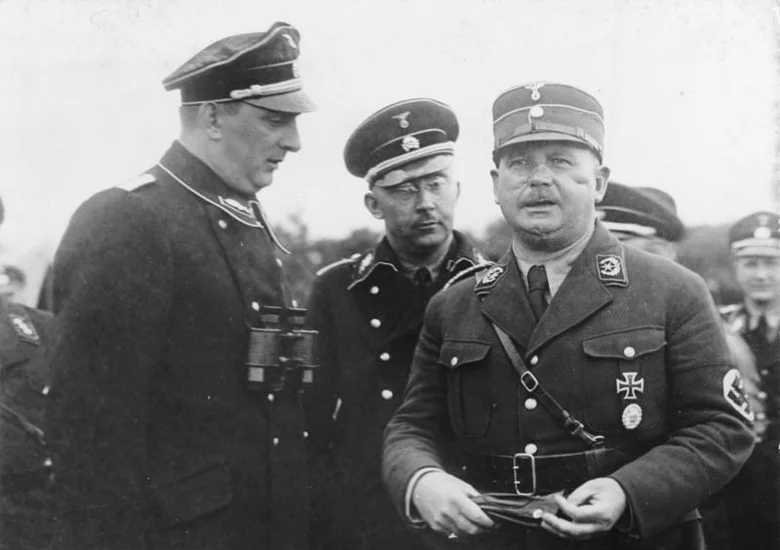
Adolf Hitler orchestrated a brutal purge of political rivals across Germany in a violent consolidation of power. Nazi storm troopers systematically eliminated SA leaders and other perceived threats to Hitler’s authority.
The coordinated assassinations removed hundreds of individuals deemed dangerous to the Nazi regime. This bloody night marked Hitler’s definitive break with the SA and his complete domination of German political life.
1960 – Belgian Congo Gains Independence as Republic of the Congo
The Belgian Congo achieved independence after decades of colonial rule, becoming the Republic of the Congo (Léopoldville). Congolese leaders celebrated the end of Belgian administrative control over their vast mineral-rich territory.
Independence celebrations quickly gave way to political instability and civil unrest. The new nation faced immediate challenges in establishing effective governance across its diverse ethnic regions and valuable mining areas.
1989 – Sudan Military Coup Deposes Democratically Elected Government
A military coup d’état overthrew Sudan’s democratically elected government, removing Prime Minister Sadiq al-Mahdi and President Ahmed al-Mirghani from power. Army officers seized control of key government buildings and communication centers in Khartoum.
The military justified their actions by citing economic crisis and political instability. This coup marked another chapter in Sudan’s troubled political history, interrupting the country’s brief experiment with democratic governance.
2019 – Donald Trump Becomes First Sitting U.S. President to Visit North Korea

President Donald Trump made history by crossing into North Korea at the Demilitarized Zone, becoming the first sitting U.S. president to set foot in the hermit kingdom. Trump met with North Korean leader Kim Jong-un in an unprecedented diplomatic gesture.
The historic encounter symbolized a dramatic shift in U.S.-North Korea relations after decades of hostility. Their meeting generated global attention and raised hopes for potential denuclearization negotiations between the two nations.
2020 – Hong Kong National Security Law Takes Effect
The Standing Committee of the National People’s Congress passed the Hong Kong National Security Law, which immediately came into effect after gazettal. This sweeping legislation fundamentally altered Hong Kong’s legal and political landscape under Chinese sovereignty.
The law criminalized secession, subversion, terrorism, and collusion with foreign forces in Hong Kong. Its implementation marked a decisive end to the “One Country, Two Systems” framework that had governed Hong Kong since 1997.
Military and Naval History on June 30
1916 – “The Day Sussex Died” at the Battle of the Boar’s Head
Elements of the Royal Sussex Regiment suffered devastating casualties during the Battle of the Boar’s Head at Richebourg-l’Avoué in France. The failed assault became known as “the day Sussex died” due to the regiment’s catastrophic losses.
British forces attempted to break through German defensive positions in a coordinated attack. The battle exemplified the brutal reality of trench warfare, where entire units could be decimated in single engagements.
1944 – Battle of Cherbourg Ends with American Victory
World War II saw the strategically vital port of Cherbourg fall to American forces after weeks of intense fighting. The capture of this Norman port provided Allied forces with crucial supply facilities for the continuing liberation of France.
German defenders had heavily fortified the port city, making its capture essential for Allied logistics. The victory secured a vital supply line that would prove instrumental in supporting the Allied advance across Western Europe.
1971 – Soviet Soyuz 11 Crew Killed by Faulty Valve
The three-man crew of Soviet spacecraft Soyuz 11 perished when their air supply escaped through a faulty valve during re-entry. This tragic accident marked the only deaths to occur in space during the early era of human spaceflight.
The cosmonauts had successfully completed a 23-day mission aboard the Salyut 1 space station. Their deaths highlighted the extreme dangers of space exploration and led to significant improvements in spacecraft safety systems.
1985 – TWA Flight 847 Hostages Freed in Beirut

Thirty-nine American hostages from hijacked TWA Flight 847 gained their freedom in Beirut after 17 days of captivity. The dramatic hijacking had focused international attention on Middle Eastern terrorism and hostage diplomacy.
Shiite militants had diverted the Athens-to-Rome flight, demanding the release of prisoners held by Israel. The successful resolution required complex negotiations involving multiple governments and demonstrated the challenges of international terrorism.
Science and Discovery Milestones on June 30
1905 – Einstein Submits Special Relativity Paper for Publication

Albert Einstein submitted his groundbreaking article “On the Electrodynamics of Moving Bodies” to Annalen der Physik, introducing special relativity to the scientific world. This revolutionary paper challenged fundamental assumptions about space, time, and motion.
Einstein’s theory proposed that space and time were interconnected and relative to the observer’s motion. The publication would transform physics and establish Einstein as one of history’s most influential scientists.
1908 – Tunguska Event Devastates Eastern Siberia
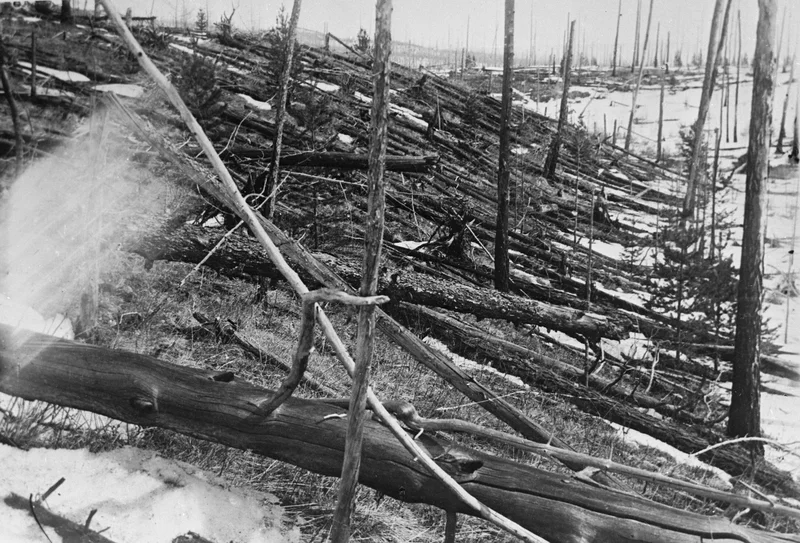
The largest impact event in recorded human history occurred when a mysterious explosion devastated over 2,000 square kilometers of Eastern Siberian forest. The Tunguska Event flattened an estimated 80 million trees in a remote wilderness area.
Scientists believe a meteor or comet exploded in the atmosphere above the Tunguska River. The blast’s energy equaled hundreds of atomic bombs, yet left no confirmed crater, making it one of history’s most intriguing scientific mysteries.
1937 – World’s First Emergency Telephone Number 999 Introduced in London
London introduced the world’s first emergency telephone number, 999, revolutionizing emergency response communications. The system enabled citizens to quickly contact police, fire, and medical services through a single, memorable number.
The innovation emerged after a house fire in Wimpole Street highlighted the need for faster emergency communications. This pioneering system would later inspire similar emergency numbers worldwide, including America’s 911 system.
1972 – First Leap Second Added to UTC Time System
Scientists added the first leap second to Coordinated Universal Time (UTC) to account for variations in Earth’s rotation. This technical adjustment maintained synchronization between atomic time and astronomical time based on Earth’s position.
The leap second correction addressed the gradual slowing of Earth’s rotation relative to atomic clocks. This precision timing system became essential for global communications, navigation, and scientific research requiring exact time measurements.
Cultural and Arts Events on June 30
1953 – First Chevrolet Corvette Rolls Off Assembly Line

The first Chevrolet Corvette sports car rolled off the assembly line in Flint, Michigan, marking America’s entry into the luxury sports car market. This fiberglass-bodied vehicle represented General Motors’ ambitious attempt to compete with European sports cars.
Only 300 Corvettes were produced in 1953, all in Polo White with red interiors. The car’s innovative design and powerful engine would establish the Corvette as an American automotive icon for decades to come.
1968 – Pope Paul VI Issues Credo of the People of God
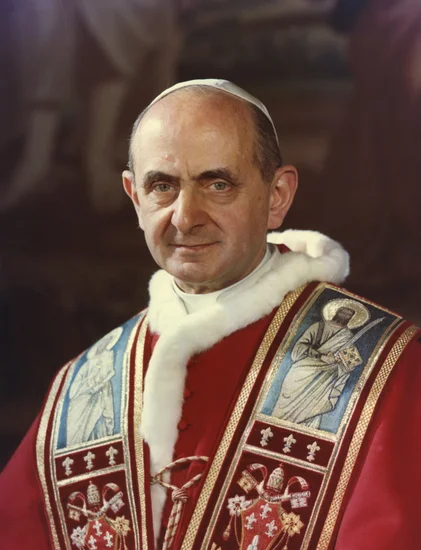
Pope Paul VI issued the Credo of the People of God, a comprehensive statement of Catholic faith addressing contemporary theological challenges. This papal document reaffirmed traditional Catholic teachings while engaging with modern philosophical and scientific developments.
The Credo emerged during a period of significant change within the Catholic Church following Vatican II. Paul VI’s statement sought to clarify Catholic doctrine amid ongoing debates about faith, reason, and modern society.
1966 – National Organization for Women Founded
The National Organization for Women, America’s largest feminist organization, was founded to advance women’s rights and equality. Betty Friedan and other activists established NOW to combat workplace discrimination and promote women’s full participation in society.
The organization emerged during the height of the civil rights movement, applying similar strategies to women’s liberation. NOW would become instrumental in advancing legislation on equal pay, reproductive rights, and workplace equality.
Religious and Social Events on June 30
1974 – Baltimore Municipal Strike Begins
The Baltimore municipal strike of 1974 began as city workers walked off their jobs demanding better wages and working conditions. The work stoppage affected essential city services and highlighted growing tensions between municipal governments and public employee unions.
The strike disrupted garbage collection, public transportation, and other vital services across Baltimore. This labor action reflected broader conflicts over public sector unionization and municipal budgets during the 1970s economic challenges.
1977 – Southeast Asia Treaty Organization Disbands
The Southeast Asia Treaty Organization formally disbanded after two decades of Cold War security cooperation. SEATO’s dissolution reflected changing geopolitical realities following the Vietnam War and America’s reduced regional military presence.
The organization had been established in 1954 to contain communist expansion in Southeast Asia. Its termination marked the end of a significant Cold War alliance and America’s shift toward different regional security arrangements.
2013 – Massive Protests Begin Against Egyptian President Morsi

Millions of Egyptians took to the streets protesting against President Mohamed Morsi and the ruling Freedom and Justice Party. The massive demonstrations demanded Morsi’s resignation and reflected deep divisions within Egyptian society.
The protests culminated in military intervention and Morsi’s removal from power within days. These events marked a dramatic turn in Egypt’s post-Arab Spring political evolution and highlighted the challenges of democratic transition.
Business and Economic Events on June 30
1906 – Congress Passes Meat Inspection Act and Pure Food and Drug Act
The United States Congress passed landmark consumer protection legislation with the Meat Inspection Act and Pure Food and Drug Act. These laws established federal oversight of food safety and pharmaceutical regulation for the first time.
The legislation responded to public outcry following Upton Sinclair’s exposé of meatpacking industry conditions in “The Jungle.” These acts created the foundation for modern food and drug safety regulations administered by federal agencies.
1990 – East and West Germany Merge Their Economies

East and West Germany formally merged their economies, creating a single German economic zone ahead of political reunification. The economic union introduced the Deutsche Mark as the common currency and integrated socialist and capitalist economic systems.
This historic merger required massive financial transfers from West to East Germany. The economic integration preceded formal political reunification and represented one of the largest economic unifications in modern history.
1986 – Supreme Court Rules in Bowers v. Hardwick
The U.S. Supreme Court ruled in Bowers v. Hardwick that states could criminalize homosexual acts between consenting adults. This controversial decision upheld Georgia’s sodomy law and reinforced legal discrimination against LGBTQ+ individuals.
The 5-4 ruling reflected conservative legal attitudes toward privacy rights and sexual conduct. The decision would later be overturned by Lawrence v. Texas in 2003, marking a significant shift in constitutional interpretation.
Transportation and Infrastructure on June 30
1956 – Mid-Air Collision Over Grand Canyon Kills 128

A TWA Super Constellation and a United Airlines DC-7 collided above the Grand Canyon in Arizona, killing all 128 passengers and crew aboard both aircraft. This tragic accident marked the deadliest aviation disaster in U.S. history at the time.
The collision occurred in uncontrolled airspace where pilots relied on visual separation between aircraft. The disaster prompted major reforms in air traffic control systems and led to the creation of the Federal Aviation Administration.
1959 – U.S. Air Force Fighter Crashes into Japanese School
A United States Air Force F-100 Super Sabre from Kadena Air Base in Okinawa crashed into a nearby elementary school, killing 11 students and six neighborhood residents. The tragic accident highlighted the dangers of military aviation near civilian populations.
The crash occurred during a training mission when the pilot lost control of the aircraft. This incident strained U.S.-Japan relations and led to increased safety protocols for military flights over populated areas.
1994 – Airbus A330 Test Flight Crashes at Toulouse
An Airbus A330-300 crashed during a test flight at Toulouse–Blagnac Airport in France, killing all seven people aboard. The accident occurred during certification testing of the wide-body aircraft’s systems and performance capabilities.
The crash investigation revealed problems with the aircraft’s flight control systems during low-speed testing. This tragedy led to important safety improvements in fly-by-wire technology and aircraft certification procedures.
Sports and Recreation on June 30
1973 – Concorde Intercepts Solar Eclipse Path
The supersonic Concorde 001 intercepted the path of a total solar eclipse, following the moon’s shadow to achieve the longest total eclipse observation in history. This remarkable feat demonstrated the aircraft’s incredible speed and precision navigation capabilities.
The scientific mission allowed astronomers to study the solar corona for an unprecedented 74 minutes. The flight showcased Concorde’s potential for scientific research while advancing our understanding of solar phenomena.
2013 – Nineteen Firefighters Die in Arizona Wildfire

Nineteen firefighters from the Granite Mountain Hotshots died while battling a wildfire near Yarnell, Arizona. The elite firefighting crew became trapped when shifting winds caused the fire to change direction rapidly.
The Yarnell Hill Fire tragedy marked the deadliest day for U.S. firefighters since September 11, 2001. The incident highlighted the extreme dangers faced by wildland firefighters and led to improved safety protocols and communication systems.
2021 – Tiger Fire Ignites Near Black Canyon City
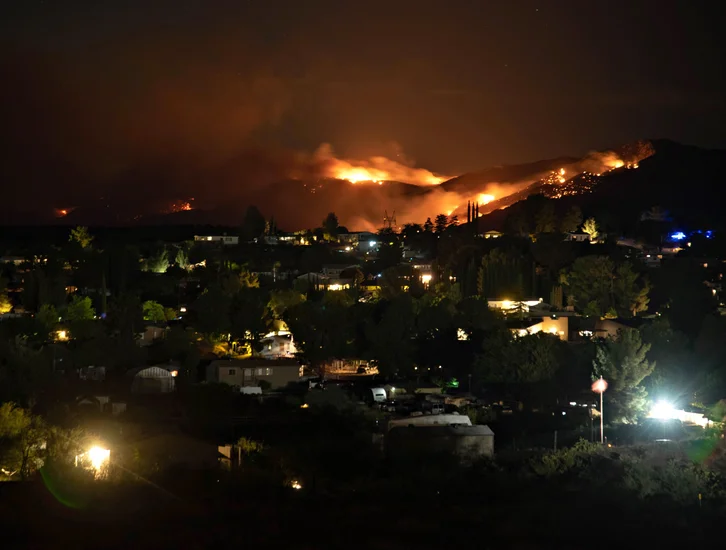
The Tiger Fire ignited near Black Canyon City, Arizona, beginning a month-long battle that would consume 16,278 acres before full containment. The wildfire threatened multiple communities and required extensive firefighting resources.
Hot, dry conditions and strong winds fueled the fire’s rapid spread across rugged terrain. The successful suppression effort demonstrated improved wildfire management techniques and inter-agency coordination in Arizona.
Notable Births on June 30
1911 – Czesław Miłosz Born in Lithuania
Polish novelist, essayist, and poet Czesław Miłosz was born in Šeteniai, Lithuania. His childhood experiences in multi-cultural Eastern Europe would profoundly influence his literary perspective and philosophical outlook.
Miłosz would later win the Nobel Prize in Literature for his powerful poetry and prose. His works explored themes of exile, memory, and the human condition during the tumultuous twentieth century.
1917 – Lena Horne Born in Brooklyn

American actress, singer, and civil rights activist Lena Horne was born in Brooklyn, New York. Her exceptional talent and striking beauty would make her one of the first African American performers to achieve mainstream success.
Horne broke racial barriers in Hollywood while maintaining her dignity and principles. Her activism and artistry made her an icon of both entertainment and the civil rights movement.
1925 – Paul Berg Born in New York

American biochemist Paul Berg was born in New York City, beginning a life dedicated to groundbreaking scientific research. His early interest in chemistry would lead to revolutionary discoveries in molecular biology.
Berg would later win the Nobel Prize in Chemistry for his work on recombinant DNA technology. His research laid the foundation for modern genetic engineering and biotechnology industries.
1942 – Robert Ballard Born in Kansas

American naval officer and oceanographer Robert Ballard was born in Wichita, Kansas. His childhood fascination with the ocean would drive him to become one of the world’s most famous underwater explorers.
Ballard would later discover the wreck of the RMS Titanic and numerous other significant archaeological sites. His innovations in deep-sea exploration technology revolutionized marine science and underwater archaeology.
1985 – Michael Phelps Born in Baltimore

American swimmer Michael Phelps was born in Baltimore, Maryland. Despite early challenges with attention deficit hyperactivity disorder, he channeled his energy into competitive swimming.
Phelps would become the most decorated Olympian of all time with 28 medals. His dominance in multiple swimming events established him as one of the greatest athletes in Olympic history.
Notable Deaths on June 30
1934 – Kurt von Schleicher Assassinated
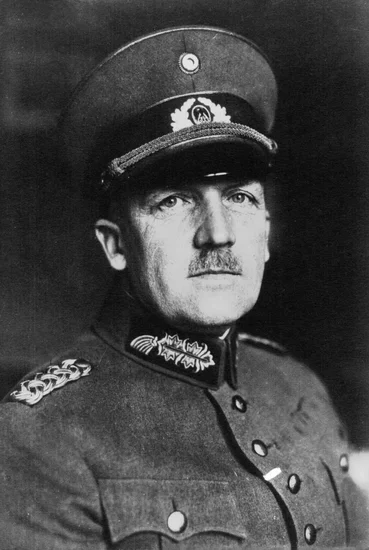
German general and politician Kurt von Schleicher, the 23rd Chancellor of Germany, was assassinated during Hitler’s Night of the Long Knives purge. His brief chancellorship had failed to prevent the Nazi rise to power.
Schleicher had attempted to split the Nazi Party and form a more moderate government. His murder eliminated one of the few remaining conservative politicians who might have challenged Hitler’s consolidation of power.
1971 – Georgy Dobrovolsky Dies in Space
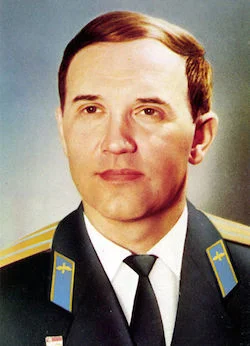
Ukrainian pilot and astronaut Georgy Dobrovolsky died aboard Soyuz 11 when the spacecraft’s cabin depressurized during re-entry. He had commanded the only successful mission to the world’s first space station, Salyut 1.
Dobrovolsky and his two crewmates became the first humans to die in space. Their sacrifice highlighted the extreme dangers of space exploration and led to significant improvements in spacecraft safety systems.
2001 – Chet Atkins Dies in Nashville

American singer-songwriter, guitarist, and producer Chet Atkins died in Nashville, Tennessee. His innovative fingerpicking guitar style and production work had shaped the sound of country music for decades.
Atkins helped create the “Nashville Sound” that brought country music to mainstream audiences. His influence extended far beyond country music, inspiring guitarists across multiple genres and generations.
2009 – Pina Bausch Dies in Germany

German dancer, choreographer, and director Pina Bausch died in Wuppertal, Germany. Her revolutionary approach to dance theater had transformed contemporary performance art and influenced countless artists worldwide.
Bausch combined classical ballet with modern dance, theater, and everyday movements. Her emotionally powerful works explored themes of human relationships, sexuality, and social dynamics through innovative choreographic techniques.
Holidays and Observances on June 30
Independence Day in Democratic Republic of Congo
The Democratic Republic of Congo celebrates Independence Day, commemorating its independence from Belgium in 1960. This national holiday marks the end of colonial rule and the beginning of self-governance for the Congolese people.
Celebrations include parades, cultural performances, and official ceremonies across the country. The day serves as an opportunity for Congolese citizens to reflect on their national identity and progress since independence.
Asteroid Day International Observance

Asteroid Day is observed internationally to raise awareness about asteroids and the potential threat they pose to Earth. This educational initiative promotes scientific research and planetary defense strategies.
The observance commemorates the Tunguska Event of 1908, the largest asteroid impact in recorded history. Scientists and educators worldwide use this day to discuss asteroid detection, tracking, and deflection technologies.
Armed Forces Day in Guatemala
Guatemala observes Armed Forces Day to honor the service and sacrifice of its military personnel. The day recognizes the role of the armed forces in protecting national sovereignty and supporting civilian authorities.
Military parades and ceremonies take place across Guatemala, showcasing the country’s defense capabilities. The observance also highlights the military’s involvement in disaster relief and community development projects.
